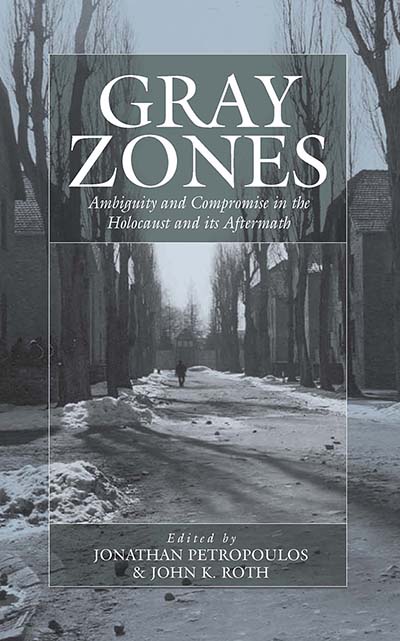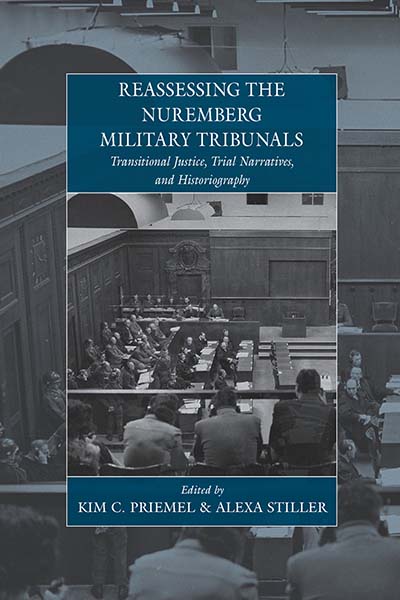
Series
Volume 7
War and Genocide
See Related
History JournalsEmail Newsletters
Sign up for our email newsletters to get customized updates on new Berghahn publications.
Networks of Nazi Persecution
Bureaucracy, Business and the Organization of the Holocaust
Edited by Gerald D. Feldman and Wolfgang Seibel
392 pages, index
ISBN 978-1-57181-177-6 $145.00/£107.00 / Hb / Published (December 2004)
ISBN 978-1-84545-163-9 $34.95/£27.95 / Pb / Published (January 2006)
eISBN 978-0-85745-707-3 eBook
Reviews
"The Berghahn series Studies on War and Genocide, in which this collection appears, has immeasurably enriched the English language scholarship available to scholars and students of genocide and, in particular, the Holocaust. This particular collection is no exception, and is another excellent, if contentious, addition to and summary of contemporary Holocaust scholarship.This is then a valuable collection that confirms some of the accepted ideas of Holocaust historiography, while also revising others. It will give access for the first time to many students and scholars to some perspectives not previously available in the English language. The diversity of those perspectives is testament to the vigour of contemporary Holocaust scholarship."—Totalitarian Movements and Political Religions.
Description
The persecution and mass-murder of the Jews during World War II would not have been possible without the modern organization of division of labor. Moreover, the perpetrators were dependent on human and organizational resources they could not always control by hierarchy and coercion. Instead, the persecution of the Jews was based, to a large extent, on a web of inter-organizational relations encompassing a broad variety of non-hierarchical cooperation as well as rivalry and competition. Based on newly accessible government and corporate archives, this volume combines fresh evidence with an interpretation of the governance of persecution, presented by prominent historians and social scientists.
Gerald D. Feldman (1937-2007) was Professor of History and Director of the Institute of European Studies at the University of California, Berkeley. His special fields of interest were 20th-century German history, and he had a special interest in business history, most recently authoring a biography of Hugo Stinnes, participating in the history of the Deutsche Bank, and writing a history of the Allianz Insurance Company in the Nazi period.
Wolfgang Seibel is Professor of Political Science at the University of Konstanz, Germany. Previous appointments include guest professorships at the Institute for Advanced Study, Vienna (1992), and the University of California at Berkeley (1994). He was also a temporary member of the School of Social Science (1989/90) and of the School of Historical Studies (2003) of the Institute of Advanced Study, Princeton. Currently (2004/2005) he is a fellow of the Wissenschaftskolleg zu Berlin. His research is mainly devoted to issues of politics, public bureaucracy and non-governmental organizations.




